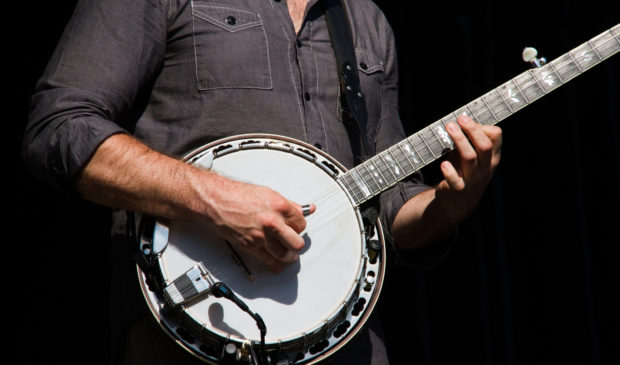City tour support, tipping program previewed in summit for Austin musicians
Tuesday, June 19, 2018 by
Chad Swiatecki The city’s music office is moving ahead with plans that could provide up to $5,000 in assistance for touring bands, as well as installing credit card kiosks in a handful of city music venues so fans can more easily tip performers and adding musicians to the city’s creative ambassador program that could help cover some travel costs for performances in other states and countries.
Those were some of the efforts touted Monday at the Music and Entertainment Division’s summit on income options for musicians, which highlighted already existing programs as well as those that are in their formative stages.
About 50 musicians or music industry professionals attended the session in City Council chambers, with music office staff sharing information and spending the majority of the two hours answering questions and taking suggestions on ways the city can keep musicians from being squeezed financially by the city’s growing affordability crisis.
Existing programs such as the Saturday Street Performance Pilot Program – paid for with $150,000 from developer Trammell Crow – and the second slate of concerts held as the family-friendly Daybird Local Music Series were discussed, including plans to study the street performance program after its September conclusion for possible expansion to other sites over the next few years.
The program currently known as Music on Hold that features Austin musicians on the city’s hold music and broadcasts for ATXN is being revamped to include more genres, provide artist recognition and better compensate creators for having their music used.
One of the proposed initiatives in its earliest stage of conception is a partnership with the Cultural Arts Division’s Capacity Building Program that would provide grants to musicians when they book national or international tours, which are often expensive and financially risky. If implemented, existing Cultural Arts funding would be routed through the music office to reward selected Austin musicians.
Erica Shamaly, director of the music office, had proposed the new program, known as ATX Tour Aid, but she said conversations with colleagues within the Economic Development Department led to exploring how to expand the Cultural Arts program to assist musicians in addition to other artists.
“All the division directors are talking and collaborating more than ever before,” she said. “We want to not reinvent the wheel but instead look at what others are doing and how we can collaborate and join forces to leverage whatever budgets we may have.”
Shamaly said talks between the two departments are in the very early stages and didn’t have an expected time frame for when the touring assistance would become available.
The Tip the Band program is expected to come online in the fall at 10 music venues still to be determined, with the city purchasing and paying the annual fee for 10 DipJar card readers that will let audience members at those venues quickly slide their credit card as a way to pay a predetermined tip to a band.
Also announced Monday was a push, also in its early stages, to do an update to the city’s 2015 music census, which found that Austin musicians suffer from low earning power and are increasingly being priced out of the city. And vendors are currently being vetted to start a pilot program for providing ongoing sound monitoring at fixed locations in downtown entertainment areas, which Shamaly said is needed to move forward with the agent of change effort that seeks to decrease friction between music venues and nearby developments.
Attendees suggested the music office work to find ways to reduce the cost of parking downtown during performances, or push local commercial radio stations to add Austin artists into their play rotations.
“I’m really excited the city has this music office and does programs like this to help make more money for musicians,” musician Vanessa Lively said. “It’s important to hear they recognize there’s a divide and a huge community of struggling artists, who can end up temporarily on the streets or couch surfing to find a way to do art and their music. It’s also good to remind everyone of the opportunities that exist here in the city, so they can take it upon themselves to do more of the homework and follow up with applying and meeting with people.”
Pianist and local radio DJ Robyn Wright said attendees were given lots of options, both through programs available through the city or recommendations to consult with nonprofits such as Austin Music Foundation, Texas Music Office and Health Alliance for Austin Musicians.
“I’ve never heard of any other city having funding for the arts provided through the city. That in and of itself is a positive, and the information about what they do and what they’re working on … the advocacy they’re doing for us is much needed,” she said. “It’s all about education and awareness and realizing that compared to a doctor or a lawyer, we put the same kind of money into our learning. When we go to venues and they don’t want to pay us, it’s an insult.”
Photo by Max Goldberg made available through a Creative Commons license.
The Austin Monitor’s work is made possible by donations from the community. Though our reporting covers donors from time to time, we are careful to keep business and editorial efforts separate while maintaining transparency. A complete list of donors is available here, and our code of ethics is explained here.
You're a community leader
And we’re honored you look to us for serious, in-depth news. You know a strong community needs local and dedicated watchdog reporting. We’re here for you and that won’t change. Now will you take the powerful next step and support our nonprofit news organization?



